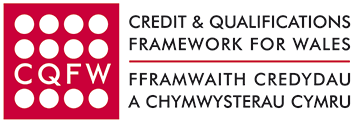| 1. |
Know how to access information and advice about financial affairs. |
|
| 1.1 | Identify sources of information and advice about methods and services for managing personal finances. | | 1.2 | Identify sources of information and advice about benefits and allowances. | | 1.3 | Describe the role of others who may be involved in supporting individuals to manage their own finances. | | 1.4 | Describe how and when to access specialist expertise about managing financial affairs. | | 1.5 | Explain how to access advice on safeguarding against financial abuse. |
|
| 2. |
Be able to provide support for individuals to manage their finances. |
|
| 2.1 | Identify legislation, codes of practice and agreed ways of working that apply when providing support to manage financial affairs. | | 2.2 | Work with the individual to identify the skills they have for managing their own finances. | | 2.3 | Identify an individual’s preferred methods and services for managing their finances. | | 2.4 | Provide support for managing finances in a way that promotes active participation and safeguards the individual. | | 2.5 | Contribute to records and reports about finances in line with agreed ways of working. |
|
| 3. |
Be able to contribute to applying for financial assistance. |
|
| 3.1 | Provide support for an individual to check the benefits and allowances to which they are entitled. | | 3.2 | Contribute to completing forms and paperwork to apply for benefits or entitlements in a way that promotes active participation. |
|
| 4. |
Be able to contribute to reviewing support for managing finances. |
|
| 4.1 | Agree with the individual the process and criteria for measuring the effectiveness of methods, services and support for managing finances. | | 4.2 | Work with the individual to evaluate methods, services and support for managing finances. | | 4.3 | Agree with the individual any changes to methods, services and support for managing finances. | | 4.4 | Provide feedback to an organisation or agency about the effectiveness of financial information or support. | | 4.5 | Explain the importance of providing feedback to organisations or agencies about any shortfalls in their financial services or support. |
|
